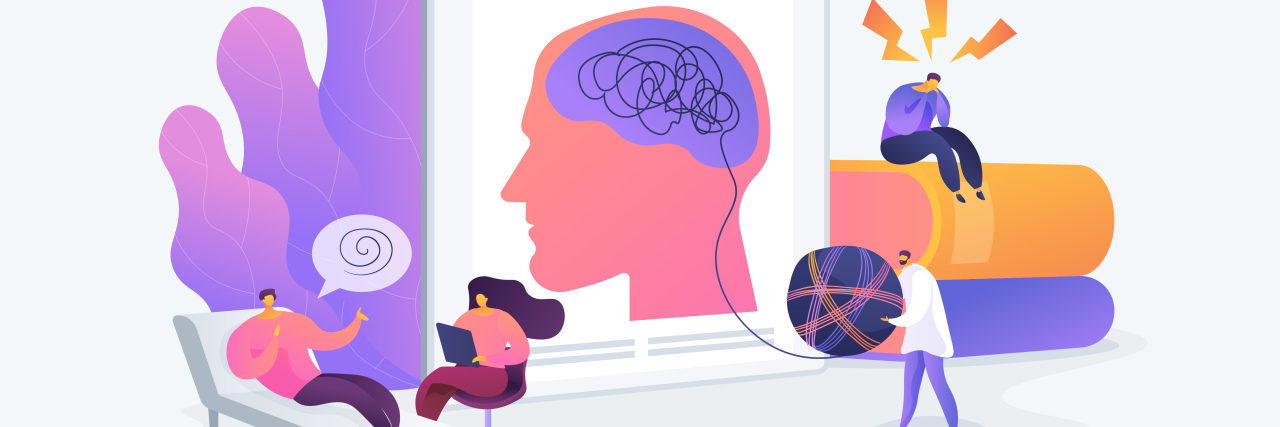It is a personal philosophy of mine that whenever I criticize an idea, I try to present an alternative. It is very easy to poke holes in another idea, while coming up with my own makes me vulnerable. I like to think a certain balance is achieved when I do this (also, I do enjoy a little theorizing!).
It is with this philosophy I began to think: if I believe counseling is a form of education, how should it be presented? Up until now, individuals usually wait until a crisis: when depression and anxiety scream so loud something is wrong, the person often has no choice but to listen. An obvious question presents itself. Why would someone who feels “totally fine” ever want to enter a counseling room?
This question has bothered for me for quite a while. Many solutions passed through my mind, but most seemed to require a dramatic overhaul of the counseling system or dramatic shift in stigma/culture. In essence, not very practical.
Deflated, I decided to look into the history of education itself. I wanted to see how it developed into the form we use today. I hoped this would give me hints as how to apply this to counseling. I stumbled into an article from 2008 by Dr. Peter Gray on this very topic. He presented something I found very interesting. For hundreds of thousands of years as hunter-gatherers, we educated ourselves through play. The concept of work did not exist. At the time, work and play were indistinguishable. It was the introduction of agriculture that suppressed the playful way of learning, and “work” was born.
If we fundamentally learned through play, perhaps this is the best way to present counseling. As a form of play.
The more I thought about this, the more it made sense to me. To have a space for an individual to explore all aspects of their life, but playfully. By playfully, I do not mean fun (like a game of tennis). But like seeing a movie or theatrical play. We go there to be immersed in the experience, to feel it. We sometimes cry, sometimes laugh, sometimes we feel affection. But we go to these places under the guise of entertainment.
Why couldn’t counseling be presented like this? There are similarities between the two, except that in counseling you are the center of attention, not someone else.
For the “perfectly OK” individual, I could see this as being something exciting. A way of personal and emotional exploration, which becomes profoundly beneficial to their lives. Given most of us spend very little time focused on emotional exploration, (compared to intellectual exploration, i.e. school) the potential for improvement is immense. From understanding difficult relationships/experiences to enhancing great ones (yes, counseling can even improve your sex life, too. Sex is at heart, one of the deepest forms of emotional communication, the very thing counseling helps with).
In our culture, we are happy to spend copious amounts of cash on the gym, social club and T.V. subscriptions. Half of the population is willing to spend thousands upon thousands of dollars on an intellectual education. Because our culture promotes that education — we have a crude way of quantifying our intellectual education through certificates and degrees. There is no such system for an emotional education. Personally, I want to write on my C.V. the hundreds of counseling sessions I have been to. It shows I have spent time examining my own psychology. The benefits of this I shall write in a future post.
An hour session with a counselor costs around 50 pounds in the UK. This is the same as most monthly gym memberships. For the individuals able to afford a gym membership, why not see a counselor once a month? Granted, ideally this would be once a week, but I have known those who do go to a counselor once a month and benefit from it. The process takes a little longer is all.
I do understand counseling is perceived as quite expensive, if solely seen as a treatment. In most countries, physical health provision is free. However, I wish to point out going to counseling is more like going to the gym. A treatment is something that is done to you. You take a painkiller, for instance, and the drug does the work. The only action required is swallowing the painkiller. Gym work requires a different mode of action to see benefits. You, as the individual, are required to do some work (or, like the title suggests, play). Going to counseling is like going to the gym, not taking a pill. It is only after some time has passed do the major benefits really kick in.
I want to present what counseling could be to the “average” person. A way to not feeling average. A way to thrive. It is through counseling we can understand ourselves better. It makes it easier to live a meaningful life. If it is possible for someone to pull themselves out of anxiety and depression through the power of an education, imagine what an average person could do with it.
Getty image by Visual Generation

